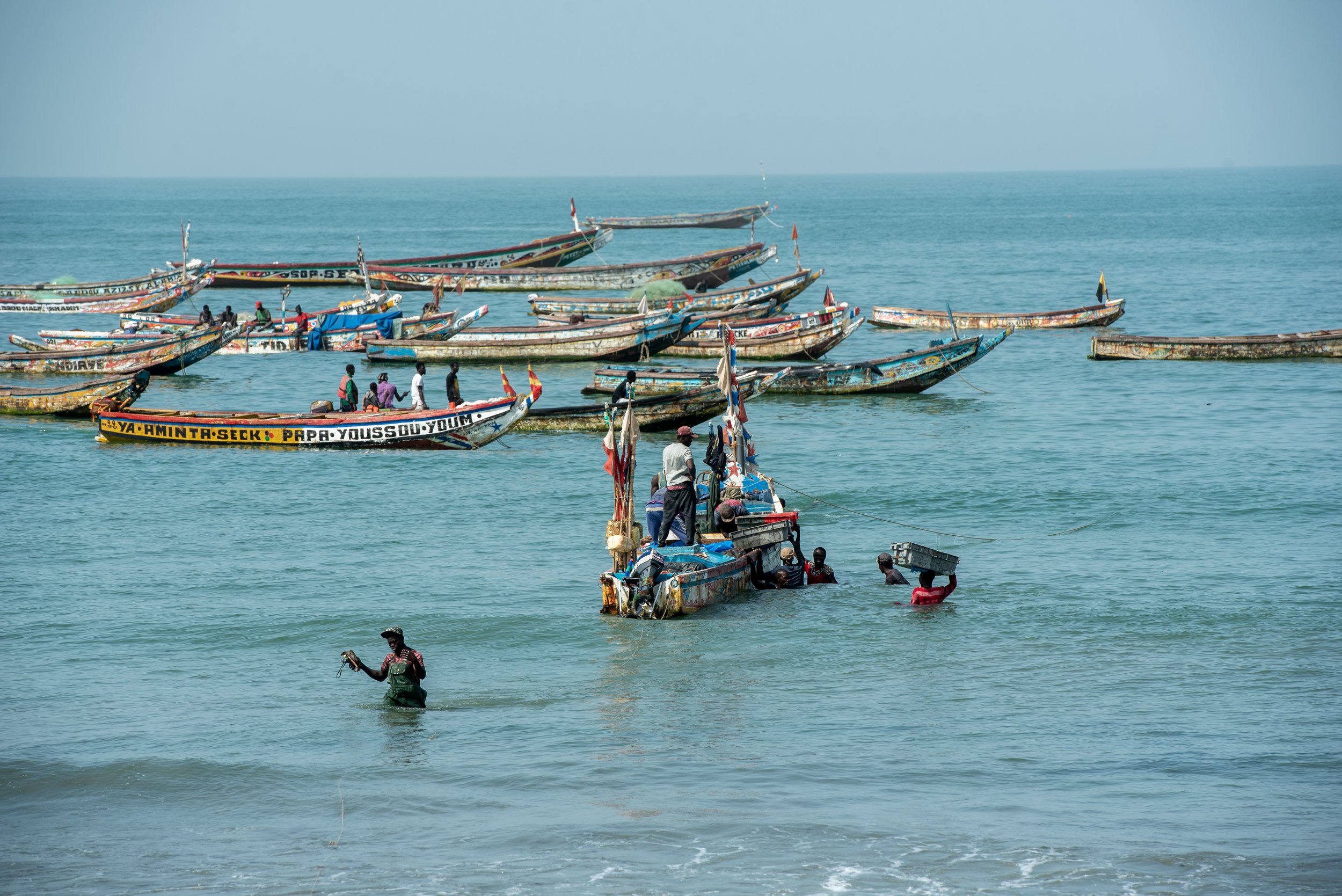The Fisheries Processing Industries Department of Senegal has published its annual report on exports of fishery products for the year 2022.
The report confirms that, after Mauritania and the Gambia, Senegal is becoming one of the countries that favours the production and export of fishmeal and fish oil to the detriment of the nutrition of its population.
Although the quantities are not comparable to those of Mauritania, there has been an 86% increase in exports of fishmeal and a 129% increase in exports of fish oil between 2021 and 2022, a sharp increase compared with the averages - albeit fluctuating - of recent years (see table below). The report soberly states that "the boom in exports should be noted...", despite the fact that many species of small pelagic fish used in the production of fishmeal and fish oil are severely overexploited.
On the ground, however, those involved in small-scale fishing have been sounding the alarm for a long time. They all speak of the scarcity of fish resources, the empty tables in the markets, the soaring prices, and of fishes that no longer reach the consumer's plate. In fact, a 2021 report indicated that in just 10 years, the availability of small pelagic fish - the species consumed by the local population and also used for fishmeal production - had dropped from 18kg/person/year to 9kg/person/year.
Even in Côte d'Ivoire, the effects are being felt. Raissa Leka Nadege Madou, a fish processor in Abidjan, says: "We used to import cartons from Mauritania and Senegal, but that's becoming increasingly difficult. Many women are leaving fish processing to pursue other occupations."
European companies benefit from this unsustainable production. Last January, CFFA, along with 10 other organisations, denounced the fact that most of the fish oil produced in Mauritania ends up in France. The same applies to oil and fishmeal from Senegal: the importing countries include several EU Member States, notably Spain, Denmark and, to a lesser extent, France. Despite the fact that Asian countries, notably China, are often singled out in the region for this trade, and that in the years 2018 to 2020, Senegal exported most of its flour to Vietnam, Spain and Turkey are in first place in this latest report, which gives figures for 2022. Spain, followed by Denmark, also imported most of Senegal's fish oil.
AND THE NEW GOVERNMENT...?
Many are celebrating the good intentions and placing their hopes in Senegal's new government. For example, the European Union, while pre-notifying the country as non-cooperating in the fight against IUU fishing, said it was "reassured" by "the measures recently taken by the new government (namely the publication of the list of fishing licences and the audit of the fishing fleet)."
Nevertheless, the Association pour la promotion et responsabilisation des acteurs de la pêche artisanale maritime (APRAPAM) (Association for the Promotion and Empowerment of Artisanal Maritime Fishing Stakeholders) warned in early April of certain proposals in the newly-elected government's election programme. In a position paper, they expressed their concern at the fact that Diomaye Faye's government wanted to encourage "the production of fish feed at local level by setting up industrial units."
For APRAPAM, this is nonsense: "small pelagic fishing is a source of employment and income for local communities, particularly women processors, who market fish throughout the region." This Senegalese civil society organisation insists that if any production is to be prioritised, it must be that which produces food for local populations and not for farmed fish consumed in rich countries. They are also calling for a "coherent approach that reduces the pressure" on this staple food. Gaoussou Gueye, President of the Confédération africaine d'organisations professionnelles de pêche artisanale, insists that "sardinella must be reserved for small-scale fishers who fish to feed their communities."
Banner photo: Fass Boye landing site, Senegal, by Agence Mediaprod.





With Senegal’s yellow card, fisheries agreement negotiations between the EU and Senegal are at a standstill. Meanwhile, the EU will negotiate the renewal of its SFPA with The Gambia, whose waters are bordered on both sides by Senegal’s. How would access to the Gambian waters be used by EU fleets, at a time when they may be barred from Senegal waters?